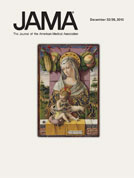
If a paper is retracted, should papers that cite it get retracted, too? We’ve been on the lookout for this kind of move, which we figure is consistent with cleaning up the scientific record. Today, one appears in Nature.
The original paper, “Mediation of pathogen resistance by exudation of antimicrobials from roots,” purported to show how a particular bug evades the immune system of Arabidopsis, a plant commonly used in the lab. It has been cited 51 times, according to Thomson Scientific’s Web of Knowledge.
The retraction notice says that the paper’s conclusions could no longer be supported because one of the key references — a paper in the Journal of Agricultural and Food Chemistry by many of the same authors — had been retracted: Continue reading A Nature chain retraction for Arabidopsis paper, and some unanswered questions








